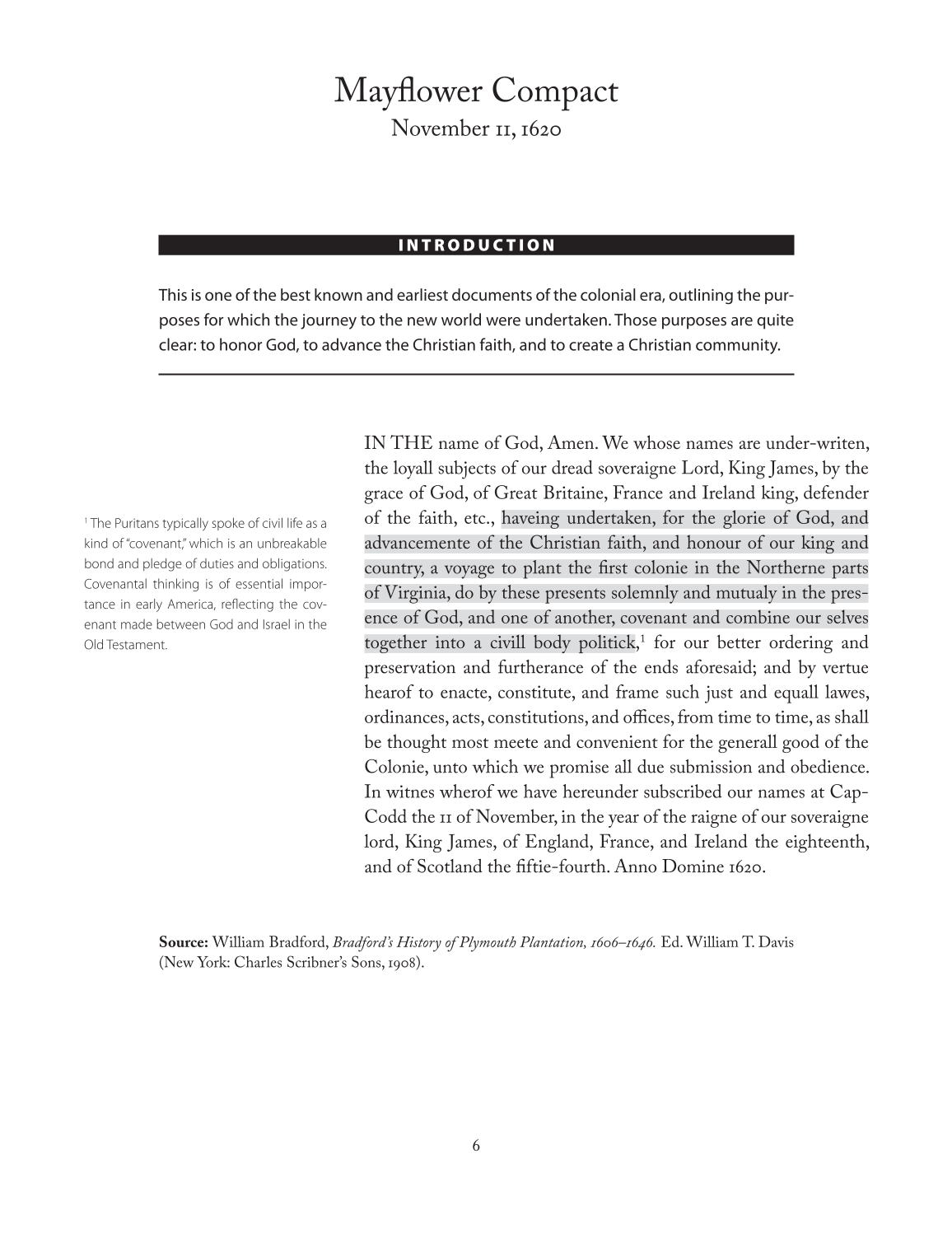6
IN THE name of God, Amen. We whose names are under-writen,
the loyall subjects of our dread soveraigne Lord, King James, by the
grace of God, of Great Britaine, France and Ireland king, defender
of the faith, etc., haveing undertaken, for the glorie of God, and
advancemente of the Christian faith, and honour of our king and
country, a voyage to plant the first colonie in the Northerne parts
of Virginia, do by these presents solemnly and mutualy in the pres-
ence of God, and one of another, covenant and combine our selves
together into a civill body politick,1 for our better ordering and
preservation and furtherance of the ends aforesaid; and by vertue
hearof to enacte, constitute, and frame such just and equall lawes,
ordinances, acts, constitutions, and offices, from time to time, as shall
be thought most meete and convenient for the generall good of the
Colonie, unto which we promise all due submission and obedience.
In witnes wherof we have hereunder subscribed our names at Cap-
Codd the 11 of November, in the year of the raigne of our soveraigne
lord, King James, of England, France, and Ireland the eighteenth,
and of Scotland the fiftie-fourth. Anno Domine 1620.
Mayflower Compact
November 11, 1620
I N T R O D U C T I O N
This is one of the best known and earliest documents of the colonial era, outlining the pur-
poses for which the journey to the new world were undertaken. Those purposes are quite
clear: to honor God, to advance the Christian faith, and to create a Christian community.
Source: William Bradford, Bradford’s History of Plymouth Plantation, 1606–1646. Ed. William T. Davis
(New York: Charles Scribner’s Sons, 1908).
1
The Puritans typically spoke of civil life as a
kind of “covenant,” which is an unbreakable
bond and pledge of duties and obligations.
Covenantal thinking is of essential impor-
tance in early America, reflecting the cov-
enant made between God and Israel in the
Old Testament.









































































































































































































































































































